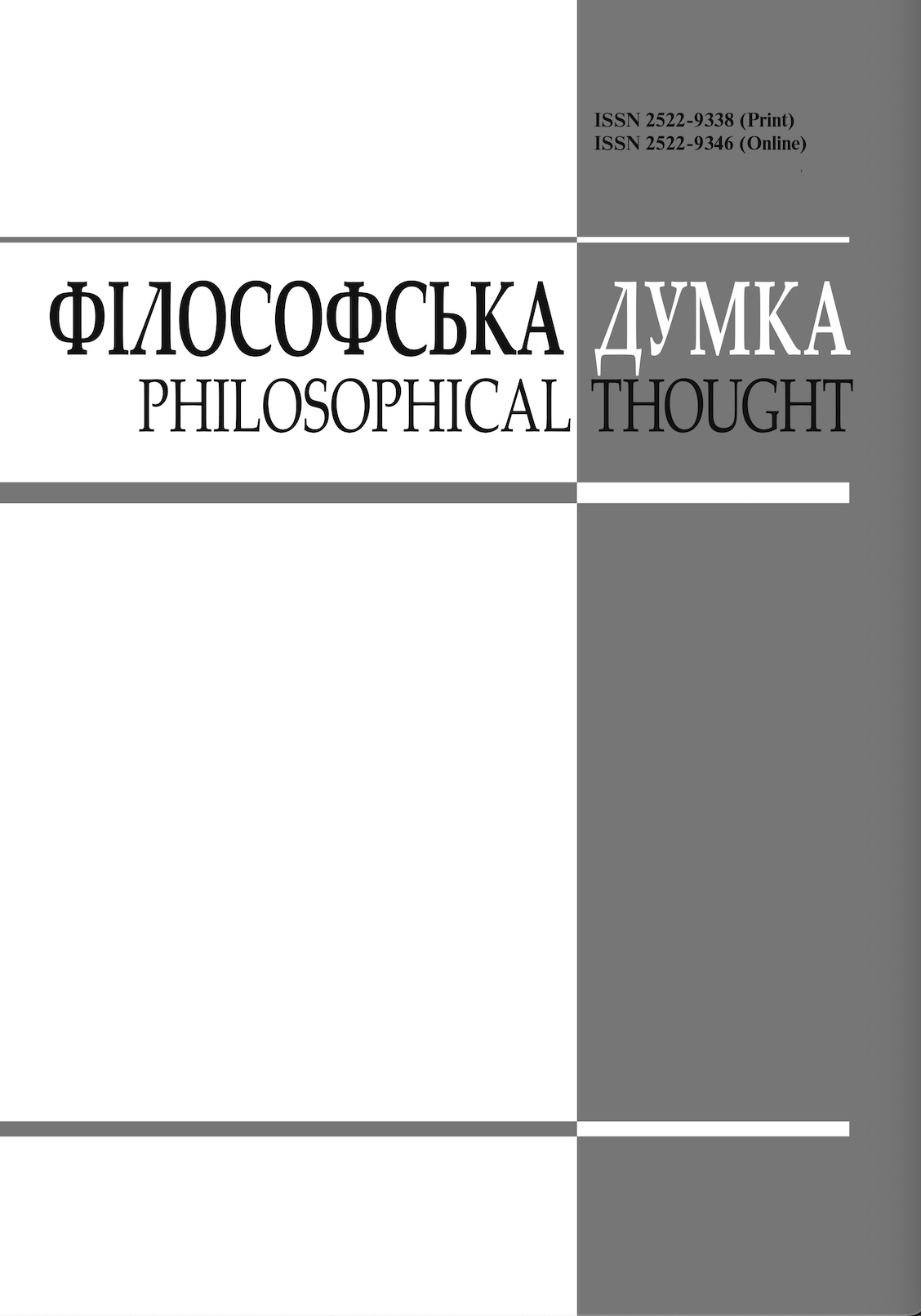War and «vision machine»
Keywords:
ʻvision machineʼ (Virilio), ʻDiscipline and punishʼ (Foucault), aletheia (ʻrevealingʼ), general world picture, ʻmultipolar worldʼAbstract
Using the concept of the ‘vision machine’ (Virilio), the essay shows that technology enhances our vision and, at the same time, makes it impersonal. New means of observation have become widespread in the current war, changing the way of battle conduct. After all, however, these devises operate in a network with worldwide coverage, like navigation or satellite tracking systems. It should be emphasized that systems of this level are based on the general world picture built by the West, which provides a very tangible advantage over autocracies hoping for a ‘multipolar world’ to emerge.
References
Descartes, R. (2000). Metaphysical Meditations. [In Ukrainian]. Kyiv: Univers.
Foucault, M. (2020). Discipline and Punish: The Birth of the Prison. [In Ukrainian]. Kyiv: Komubuk.
Heidegger, M. (1977). The Question Concerning Technology and Other Essays. New York, London: Garland Publishing, Inc.
Orwell, G. (2015). 1984. [In Ukrainian]. Kyiv: Zhupanskyi Publisher. Virilio, P. (1994). The Vision Machine. Bloomington: Indiana University Press.
Downloads
-
PDF (Українська)
Downloads: 98
Published
How to Cite
Issue
Section
License
Authors who publish with this journal agree to the following terms:
- Authors retain copyright and grant the journal right of first publication.
- Authors are able to enter into separate, additional contractual arrangements for the non-exclusive distribution of the journal's published version of the work (e.g., post it to an institutional repository or publish it in a book), with an acknowledgement of its initial publication in this journal.
- Authors are permitted and encouraged to post their work online (e.g., in institutional repositories or on their website) prior to and during the submission process, as it can lead to productive exchanges, as well as earlier and greater citation of published work (See The Effect of Open Access).


